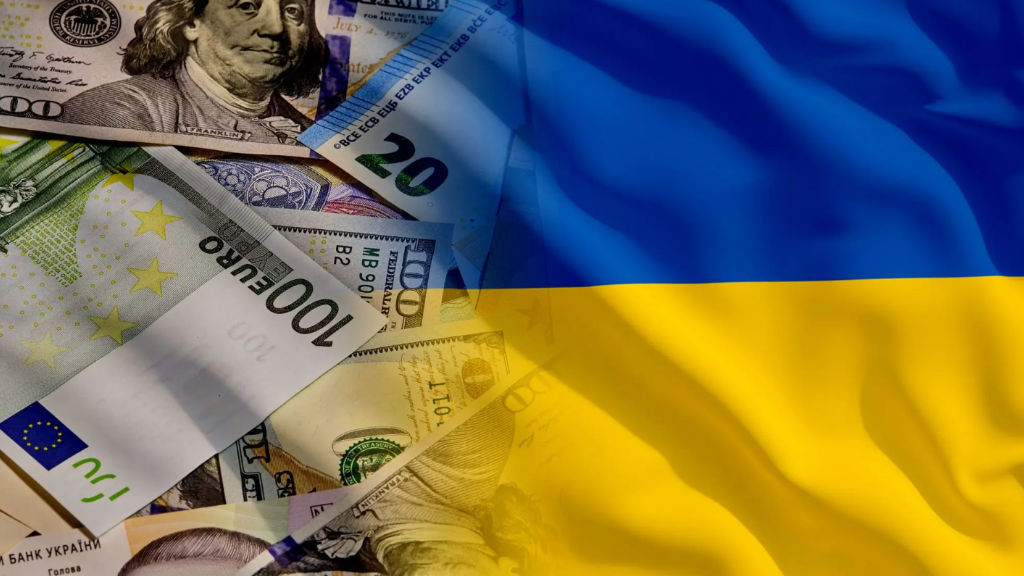The United States and European Union have green-lit a decision to pass interest earned by Russian securities frozen in the US and EU to Ukraine, to use in order to repay a US$20 billion loan. We examine the implications and the potential global fallout over this unprecedented financial development.
The Total Amount Due
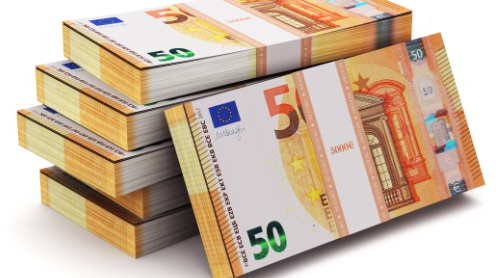
The US and EU have awarded a loan of US$20 billion to Ukraine, however there will also be interest payments to be made against this. While the applicable interest rate has not been declared, the International Monetary Fund’s (IMF) interest rate for large borrowers is currently over 8%. Depending upon how this is structured, the total amount repayable by Ukraine is likely to be considerably more. Just 8% of US$20 billion amounts to US$1.6 billion. This could rapidly increase, depending upon the structuring interest rate element within the loan agreement.
Total Frozen Russian Capital
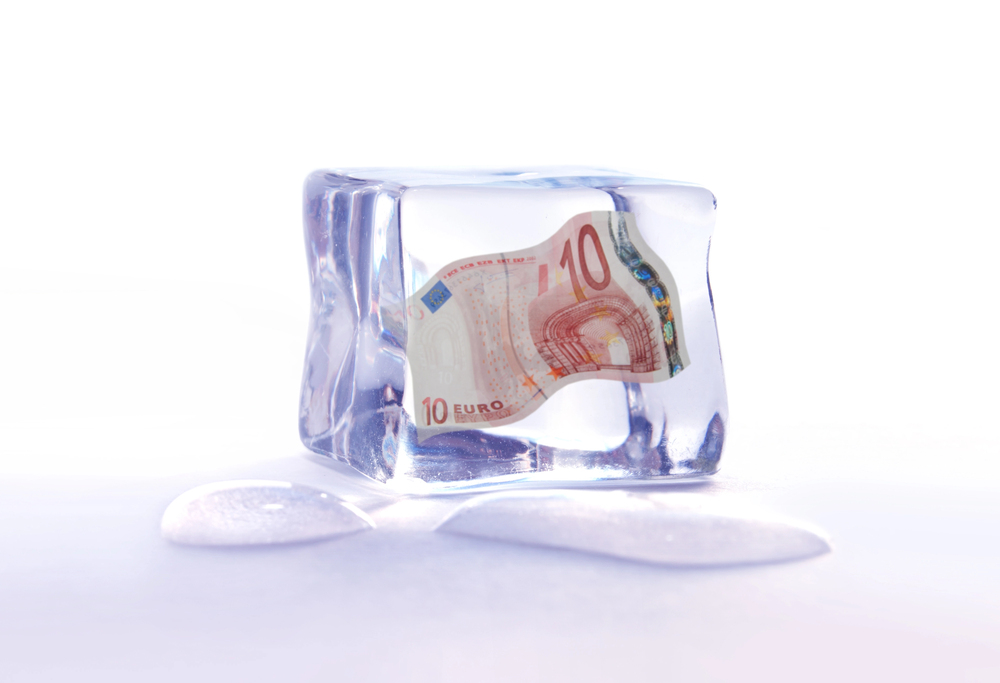
The security for this loan has been made against frozen Russian assets held in both the European Union and the United States. In the EU, these are mostly held by the transactional company Euroclear and are acknowledged at being worth US$278 billion in cash (actually held in Euros). The United States has not declared the amounts of Russian financial assets it holds, but these are estimated at about US$67 billion. The total frozen cash value is therefore in the region of about US$345 billion. This capital is the legal property of the Russian people.
Of particular note is that of this total amount, the EU holds over 75% of the full amount and has the proportionate amount of legal risk and responsibility.
Another point to consider is the definition of ‘frozen’. How this is legally defined is a key issue as the Russian capital was ‘frozen’ at the behest of the United States and European Union political leaders, and not by any established financial institutions. The freezing of this money also took place at somewhat short notice and in an unprecedented manner. This implies that the US and EU sovereign governments, and subsequently their own taxpayers, are ultimately responsible for this money. Given the unprecedented way this money was frozen, the legality of this conduct is also questionable.
Concerning the definition of ‘frozen’, the term implies nothing happens with the capital, it just stays in situ. However, this is obviously not the case, as the capital has been accruing interest, with that interest now being given to Ukraine to pay off a loan. The legal definition of ‘frozen’ therefore is ambiguous.
Legality

There is no recognised legal mechanism in place to warrant either the freezing, nor the distribution of interest of Russia’s assets. The risk and responsibility of going ahead with these procedures therefore leave the United States and European Union governments as liable. As discussed, this responsibility and the risk then ultimately falls upon their own citizens and taxpayers.
There are also issues concerning sanctions and legal impartiality. Should the Russian government want to bring a case against the United States and/or the European Union, which international court would be considered impartial enough to make a judgement? This is largely the conundrum that Moscow has in currently pursuing legal actions against the US or EU. Yet this too raises serious questions concerning the current ethical and impartial state of global jurisprudence.
Western Capital Assets in Russia
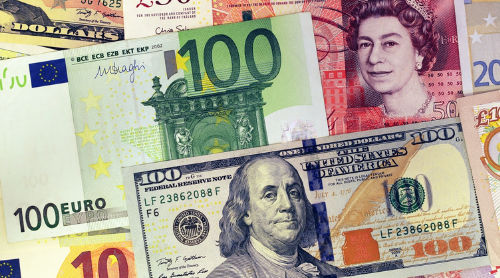
Western companies invested in Russia also hold assets in the country, with Russia passing laws not to freeze them, but to prevent them from leaving the country. The total value has not been disclosed but is believed to be an amount similar to the Russian capital held in the West.
This means that Russia, while the transferring of any assets externally can only be approved by Russian President Putin, is allowing these assets to be put to standard business use and to generate profits as each business activity permits. About 75% of all Western-invested businesses have remained in the Russian market, despite the rhetoric concerning Russian exits. They did so because the Russian domestic market is significant – it is a consumer market of 143 million with free trade access to another 42 million. It is also notable that Russia’s GDP growth was 3.65% in 2023 and is expected to be about 4.1% in 2024. Western businesses in Russia will have experienced part of this growth in their own operations, increasing profits and therefore adding to the value of Western assets in the country.
Thus far, Moscow has mostly not touched these. But there have been comments about nationalising some of these companies, transferring them to State Ownership and ultimately selling them on to Russian entrepreneurs. A handful of cases of exactly this scenario, most notably as concerns Carlsberg’s “Baltika” assets in Russia is an example – they were acquired by the State and sold on. How and if Moscow would really want to continue this as a State Policy against Western businesses in Russia is a moot point. However, given that Putin can keep the assets under Western management operational anyway and will not want to be seen as imposing State Ownership upon Private companies, suggests he will not. We consider it is unlikely that Moscow would seek further redress. If correct, it also focusses the legal issues of what constitutes ‘ownership’ back onto the legality of the US and EU’s actions.
The EU’s Current Position
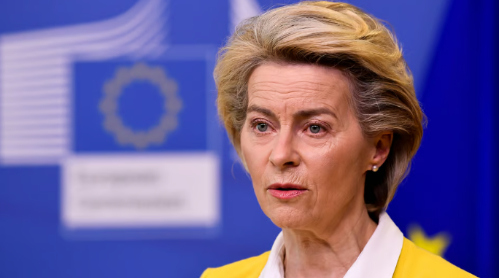
There are key issues here that are immensely disturbing to the global community. Firstly, the United States and European Union are now increasingly perceived as operating outside internationally agreed conventions, and imposing their own, undefined decision-making process, based upon political issues as opposed to the rule of law.
This is eroding trust in their institutions. It is notable that Euroclear has commented on the decision – imposed upon the company by the European Union – that it must transfer interest earned by Russian capital to Ukraine – as being unacceptable. Euroclear’s CEO, Valerie Urbain, has said that plans to seize Moscow’s assets should also transfer all of the liabilities, saying the company “Cannot be in the situation whereby the assets have been seized, but, in a couple of years, Russia comes and knocks at our door and says, ‘I want to recoup my securities,’ when the securities assets have disappeared. If there is a confiscation of assets, everything should move, liabilities included (away from Euroclear).” This means that Euroclear themselves are concerned about liability and risk and want to pass the ultimate responsibility on to the EU.
Meanwhile, the European Union’s top diplomat, Kaja Kallas, has expressed doubt that Russia will ever recover its sovereign assets. Kallas stated on Tuesday (December 10) that “Russia legally has a legitimate claim to the assets immobilized by the West.” She added, however, that the EU should use the cash to reconstruct Ukraine before handing back whatever remains. In short, the EU’s top diplomat is acknowledging that the EU intends to ignore ‘legitimate claims’. That is a repudiation of international law.
The Global Impact
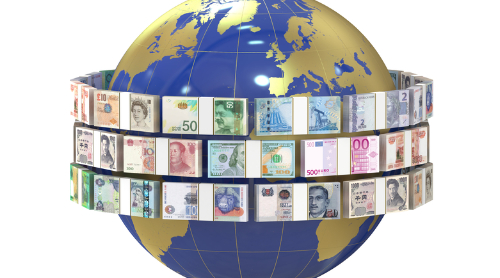
The implications here are immense, and has other sovereign governments extremely concerned. In effect, the United States and European Union are stating that ‘the act of holding of assets on behalf of another country can now be construed as legitimate ownership’ – regardless of international laws.
This significantly erodes trust in both as a haven for holding sovereign assets. Russia’s experience is not in fact unique – it is becoming Western foreign policy. When the United States exited Afghanistan in 2021, it also froze assets belonging to the Afghani people worth about US$7 billion of reserves on deposit at the Federal Reserve Bank of New York, in addition to US$2 billion of Afghani capital held in the EU.
50% of that money – belonging to the people of Afghanistan – has subsequently been re-distributed to US citizens affected by the 9-11 attacks carried out by Al Queda in 2001. As a result of it not being returned to Afghanistan, the country immediately suffered a famine where according to Save The Children, an estimated 50% of Afghanistan’s population suffered serious malnutrition and starvation as a result.
Freezing and distributing Russia’s US$345 billion of sovereign assets is therefore indicative of a new Western, globally inclusive foreign policy of seizing and re-distributing capital that actually belongs to other countries. The concept of ‘legal ownership’ and the international laws governing this have been challenged. It has placed political decision-making and Western political thought as overriding international law.
That creates significant problems for other countries holding sovereign assets in the West.
What Will Happen Next?

No-one really knows what the future implications will be, with Biden about to leave office and any culpability, and a new President about to enter the White House. How Trump views this issue will be key, but at present, the situation has become somewhat chaotic. It has become unpredictable.
Given standard anti-risk practice, non-Western governments globally will be discussing amongst themselves a plan of action and looking at ways to de-leverage exposure to any potential Western seizure of their assets. This will be particularly important to governments who are not on especially good terms with the United States and European Union, as they will perceive themselves as having a higher risk.
In terms of sanctions and partial sanctions already imposed by either the US or EU on sovereign governments or prominent individuals, these currently include the following global economies:
Europe
Belarus, Bosnia and Herzegovina, Russia, and Serbia
Africa
Burundi, Central African Republic, DR Congo, Eritrea, Ethiopia, Guinea, Guinea-Bissau, Libya, Mali, Niger, Somalia, South Sudan, Sudan, Tunisia, and Zimbabwe
Middle East
Iran, Iraq, Lebanon, Syria, Turkiye, and Yemen
Central Asia
Afghanistan
Asia
Cambodia, China, Hong Kong, Myanmar, and North Korea
Latin America
Cuba, Guatemala, Haiti, Nicaragua, and Venezuela
This means that about 20% of all countries globally are currently affected by sanctions imposed by either the United States or the European Union. These will be primary amongst those who wish to de-risk their Western exposure.
Repercussions
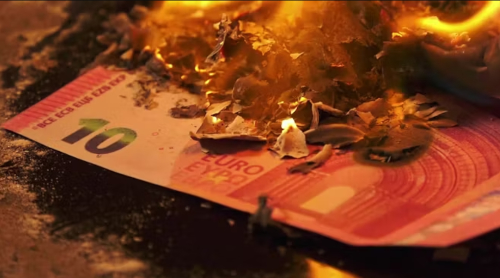
The unknown question is how this will manifest itself – these are uncharted waters. No-one will want to dramatically upset the existing global economic system, but changes will undoubtedly occur. Amongst some, and especially in Africa and Latin America, these are also likely to be coordinated, and involve organisations such as the BRICS, where trade and supply chains – and therefore the need to retain capital in the West – will slowly migrate.
China is a significant player here and has long expressed its desire to re-risk its exposure to US debt. Beijing has been following a policy of selling off its US debt holdings for several years now in what is a longer-term strategy. According to the U.S. Treasury, between March 2023 and March 2024, China sold off US$100 billion in U.S. Treasuries, on top of the US$300 billion it had already sold off over the past decade. Beijing is still the second-largest foreign holder of U.S. debt, with a claim of around US$816 billion. Quite how the US will manage its debt, given it already owes US$33.4 trillion is a substantial question, given that its value is now exclusively held by the confidence of its global economic partners. When China has de-dollarized to what Beijing will view a more reasonable risk value by about 2028-29, pressure on the US dollar will increase.
For the European Union, the damage risk is also considerable. It holds the largest portion of Russia’s frozen capital, with those being held in Euros. Interfering with the Euros credibility by passing interest earned on the currency to a third-party country (Ukraine) can be expected to see overseas holdings of assets held in Euros significantly decline. That would impact the Euros credibility as a ‘reserve’ currency to the US dollar – and conversely would not be viewed negatively in the United States either, who will almost certainly want to prop up Dollar use by seeing the demise of its major competitor.
A perfect economic storm, at least for the West, is brewing, with the sending of Russian capital to Ukraine just the start of an on-going process. Watching how the United States and European Union are impacted, firstly by observing the quiet withdrawal of assets and funds held by their more questioning, and economically critical global trade partners, will be one way to monitor the situation and adapt accordingly. De-Euroizing assets will become more of a priority for many than De-Dollarizing. EU taxpayers and investors in particular should be taking notice.

 Русский
Русский








